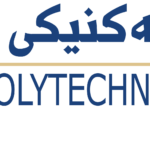- sally khalil baqer
- sally.40773@gmail.com
- 0772 264 7692
- sally final thesis - Copy
-
Type 2 Diabetes (T2D) is the most common form of diabetes; it develops when pancreatic cells produce an excess amount of insulin, resulting in insulin resistance by peripheral cells. T2D is an illness that caused by interaction between genetics and environmental factors. Genetic factors are involved in the development of T2D and several genetic variants increase the risk to have T2D. The single nucleotide polymorphisms (SNPs) rs1801282 in the Peroxisome Proliferator-Activated Receptors gamma) PPARG (gene and rs9939609 in the Fat mass and obesity associated protein (FTO (gene were discovered to be related to raising the risk of T2D in different populations. This research aimed to discover if rs1801282 in the PPARG gene and rs9939609 in the FTO gene are responsible for increasing the risk of T2D in Kurdistan region. In the current study DNA from 200 unrelated individuals (100 T2D, and 100 non-diabetic control) were genotyped using Allele-specific PCR for both SNPs. The accuracy of the PCR methods used were validated by the Sanger sequencing method.
The association analysis for the rs1801282 (adjusted by sex, age, and BMI) showed significant differences between the cases and the control groups for rs1801282, individuals with genotypes (GG, and GC) had a higher risk of the disease (p-value = 0.0045, OR = 3.96, 95%CI: 1.31-11.94) than genotype (CC). the contrary, there was no significant differences (p value= 0.39) between the case and control groups for the rs9939609 variant in the FTO gene.
The findings in this research suggested that the variant rs1801282 in the PPARG gene was a genetic susceptible SNP in T2D in the Kurdish population, while SNP rs9939609 in the FTO gene was not associated with T2D. Further investigations with larger number samples are required to validate these findings.
- Erbil Technical Health College
- medical laboratory technique
- medical laboratory Technique


